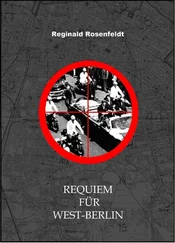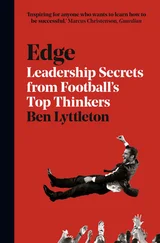Isaiah Berlin - Russian Thinkers
Здесь есть возможность читать онлайн «Isaiah Berlin - Russian Thinkers» весь текст электронной книги совершенно бесплатно (целиком полную версию без сокращений). В некоторых случаях можно слушать аудио, скачать через торрент в формате fb2 и присутствует краткое содержание. Год выпуска: 0101, Жанр: Старинная литература, на русском языке. Описание произведения, (предисловие) а так же отзывы посетителей доступны на портале библиотеки ЛибКат.
- Название:Russian Thinkers
- Автор:
- Жанр:
- Год:0101
- ISBN:нет данных
- Рейтинг книги:3 / 5. Голосов: 1
-
Избранное:Добавить в избранное
- Отзывы:
-
Ваша оценка:
- 60
- 1
- 2
- 3
- 4
- 5
Russian Thinkers: краткое содержание, описание и аннотация
Предлагаем к чтению аннотацию, описание, краткое содержание или предисловие (зависит от того, что написал сам автор книги «Russian Thinkers»). Если вы не нашли необходимую информацию о книге — напишите в комментариях, мы постараемся отыскать её.
Russian Thinkers — читать онлайн бесплатно полную книгу (весь текст) целиком
Ниже представлен текст книги, разбитый по страницам. Система сохранения места последней прочитанной страницы, позволяет с удобством читать онлайн бесплатно книгу «Russian Thinkers», без необходимости каждый раз заново искать на чём Вы остановились. Поставьте закладку, и сможете в любой момент перейти на страницу, на которой закончили чтение.
Интервал:
Закладка:
lives of her peasants on the part of'the well-meaning, but vain and foolish,
landoWDer. His argument is highly convincing.
zs6
TOLSTOY AND E N L I G HTEN MENT
schools on what, less or more correctly, they take this to be'. They
struck off one yoke only to put another in its place. Certain scholastic
philosophers insisted on Greek because that was the language of
Aristotle, who knew the truth. But, Tolstoy continues, Luther denied
the authority of the Church Fathers and insisted on inculcating the
original Hebrew, because he lmn» that that was the language in which
God had revealed eternal truths to men. Bacon looked to empirical
knowledge of nature, and his theories contradicted those of Aristotle.
Rousseau proclaimed his faith in life, life as he conceived it, and not in
theories.
But about one thing they were all agreed: that one must liberate
the young from the blind despotism of the old; and each immediately
substituted his own fanatical, enslaving dogma in its place. If I am sure
that I know the truth and that all else is error, does that alone entitle
me to superintend the education of another? Is such certainty enough?
Whether or not it disagrees with the certainties of others? By what right
do I put a wall round the pupil, exclude all external influences, and try
to mould him as I please, into my own or somebody else's image?
The answer to this question, Tolstoy passionately says to the
progressives, must be 'Yes' or 'No': 'If it is "Yes", then the Jews'
synagogue, the church school, has as much legitimate right to exist
as all our universities.' He declares that he sees no moral difference, at
least in principle, between the compulsory Latin of the traditional
establishments and the compulsory materialism with which the radical
professors indoctrinate their captive audiences. There might indeed be
something to be said for the things that the liberals delight in denouncing: education at home, for example. For it is surely natural that parents should wish their children to resemble them. Again there is a
case for a religious upbringing, for it is natural that believers should
want to save all other human beings from what they, at any rate, are
certain must be eternal damnation. Similarly the government is
entitled to train men, for society cannot survive without some sort of
government, and governments cannot exist without some qualified
specialists to serve them.
But what is the basis of' liberal education' in schools and universities,
staffed by men who do not even claim to be sure that what they teach
is true? Empiricism? The lessons of history? The only lesson that history
teaches us is that all previous educational systems have proved to be
despotisms founded on falsehoods, and later roundly condemned. Why
should the twenty-first century not look back on us in the nineteenth
,,
'-57
R U S S I AN T H I N K ERS
with the same scorn and amusement as that with which we now loolt:
on medieval schools and universities? If the history of education is
the history merely of tyranny and error, what right have we to carry
on this abominable farce? And if we are told that it has always been
so, that it is nothing new, that we cannot help it, and must do our bestis this not like saying that murders have always taken place, so that we might as well go on murdering, even though we have now discovered
what it is that makes men murder?
In these circumstances, we should be villains if we did not say at
least so much as this: that since, unlike the Pope or Luther or modem
positivists, we do not ourselves claim to base our education (or other
forms of interference with human beings)on the knowledge of absolute
truth, we must at least stop torturing others in the name of what we
do not know. All we can know for certain is what men actually want.
Let us at least have the courage of our admitted ignorance, of our
doubts and uncertainties. At least we can try to discover what others,
children or adults, require, by taking off the spectacles of tradition,
prejudice, dogma, and making it possible for ourselves to know men
as they truly are, by listening to them carefully and sympathetically,
and understanding them and their lives and their needs, one by one
individually. Let us at least try to provide them with what they ask
for, and leave them as free as possible. Give them Bildung (for which
he produces a Russian equivalent, and points out with pride that there
is none in French or English)-that is to say, seek to influence them
by precept and by the example of our own lives; but do not apply
'education' to them, which is essentially a method of coercion, and
destroys what is most natural and sacred in man-the capacity for
knowing and acting for himself in accordance with what he thinks
to be true and good -the power and the right of self-direction.
But he cannot let the matter rest there, as many a liberal has tried
to do. For the question immediately arises: how are we to contrive
to leave the schoolboy and the student free? By being morally neutral?
By imparting only factual knowledge, not ethical, or aesthetic, or
social or religious doctrine? By placing the 'facts' before the pupil,
and letting him form his own conclusions, without seeking to influence
him in any direction, for fear that we might infect him with our own
diseased outlooks? But is it really possible for such neutral communications to occur between men? Is not every human communication a conscious or unconscious impression of one temperament, attitude to life, scale of values, upon another? Are men ever so
258
TOLSTOY AND E N L I G HTEN M ENT
thoroughly insulated from each other, that the careful avoidance of
more than the minimum degree of social intercourse will leave them
unsullied, absolutely free to see truth and falsehood, good and evil,
beauty and ugliness, with their own, and only their own eyes? Is this
not an absurd conception of individuals as creatures who can be kept
pure from all social influence-absurd in the world even of Tolstoy's
middle years-even, that is, without the new knowledge of human
beings that we have acquired today, as the result of the labours of
psychologists, sociologists, philosophers? We live in a degenerate
society: only the pure can rescue us. But who will educate the educators? Who is so pure as to know how, let alone be able, to heal our world or anyone in it?
Between these poles-on one side facts, nature, what there is; on
the other duty, justice, what there should be; on one side innocence,
on the other education; between the claims of spontaneity and those
of obligation, between the injustice of coercing others, and the injustice
of leaving them to go their own way, Tolstoy wavered and struggled
all his life. And not only he, but all those populists and socialists and
idealistic students who in Russia 'went to the people', and could not
decide whether they went to teach or to learn, whether the 'good of
the people' for which they were ready to sacrifice their lives was what
'the people' in fact desired, or something that only the reformers
knew to be good for them, what the 'people' should desire-would
desire if only they were as educated and wise as their championsbut, in fact, in their benighted state, often spurned and violently resisted.
These contradictions, and his unswerving recognition of his failure
to reconcile or modify them, are, in a sense, what gives their special
Читать дальшеИнтервал:
Закладка:
Похожие книги на «Russian Thinkers»
Представляем Вашему вниманию похожие книги на «Russian Thinkers» списком для выбора. Мы отобрали схожую по названию и смыслу литературу в надежде предоставить читателям больше вариантов отыскать новые, интересные, ещё непрочитанные произведения.
Обсуждение, отзывы о книге «Russian Thinkers» и просто собственные мнения читателей. Оставьте ваши комментарии, напишите, что Вы думаете о произведении, его смысле или главных героях. Укажите что конкретно понравилось, а что нет, и почему Вы так считаете.










